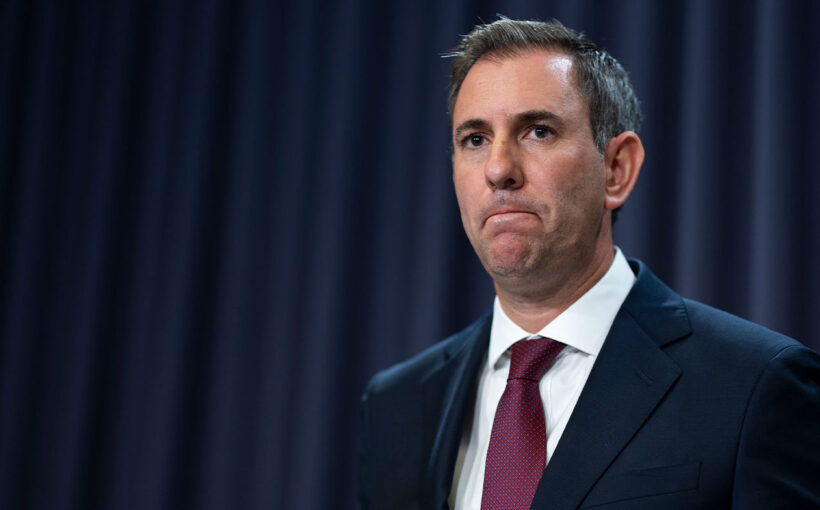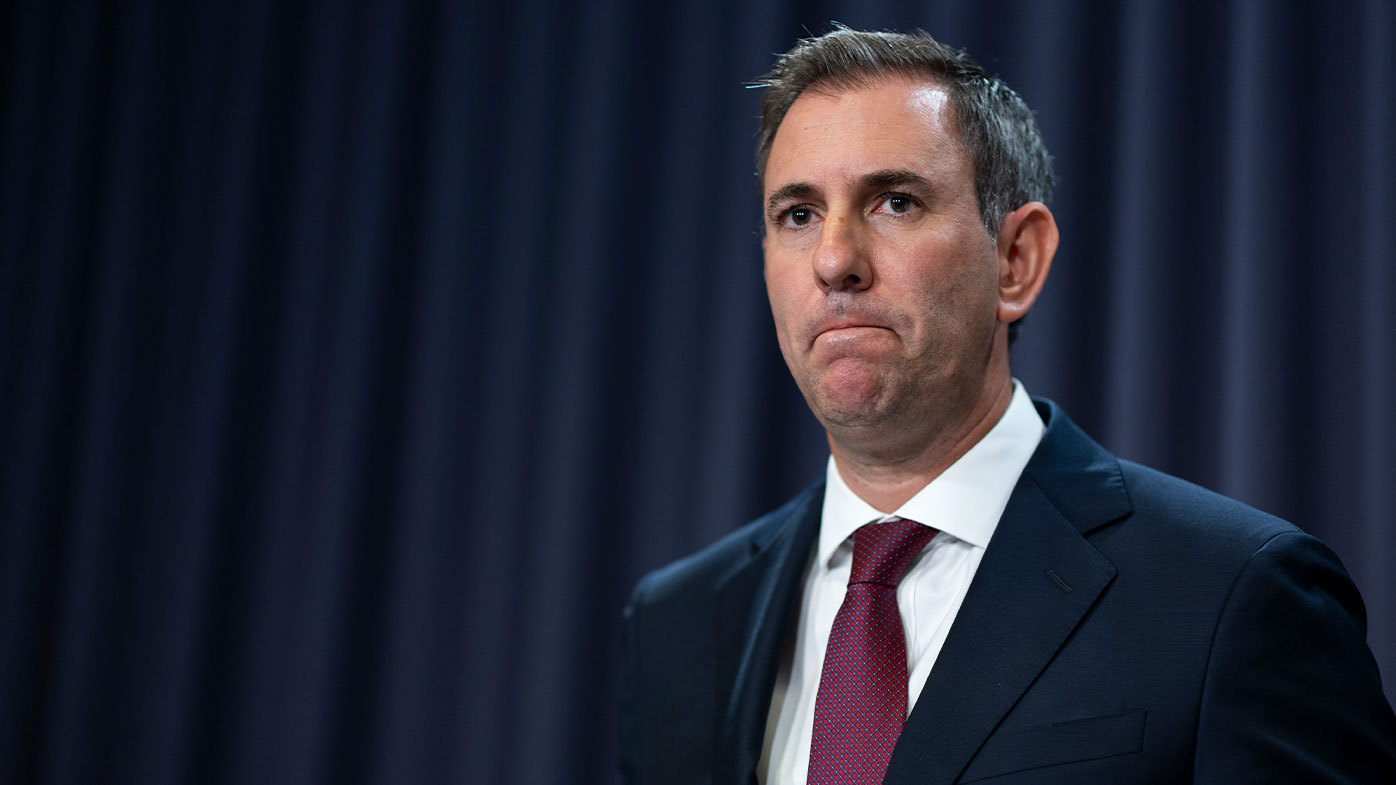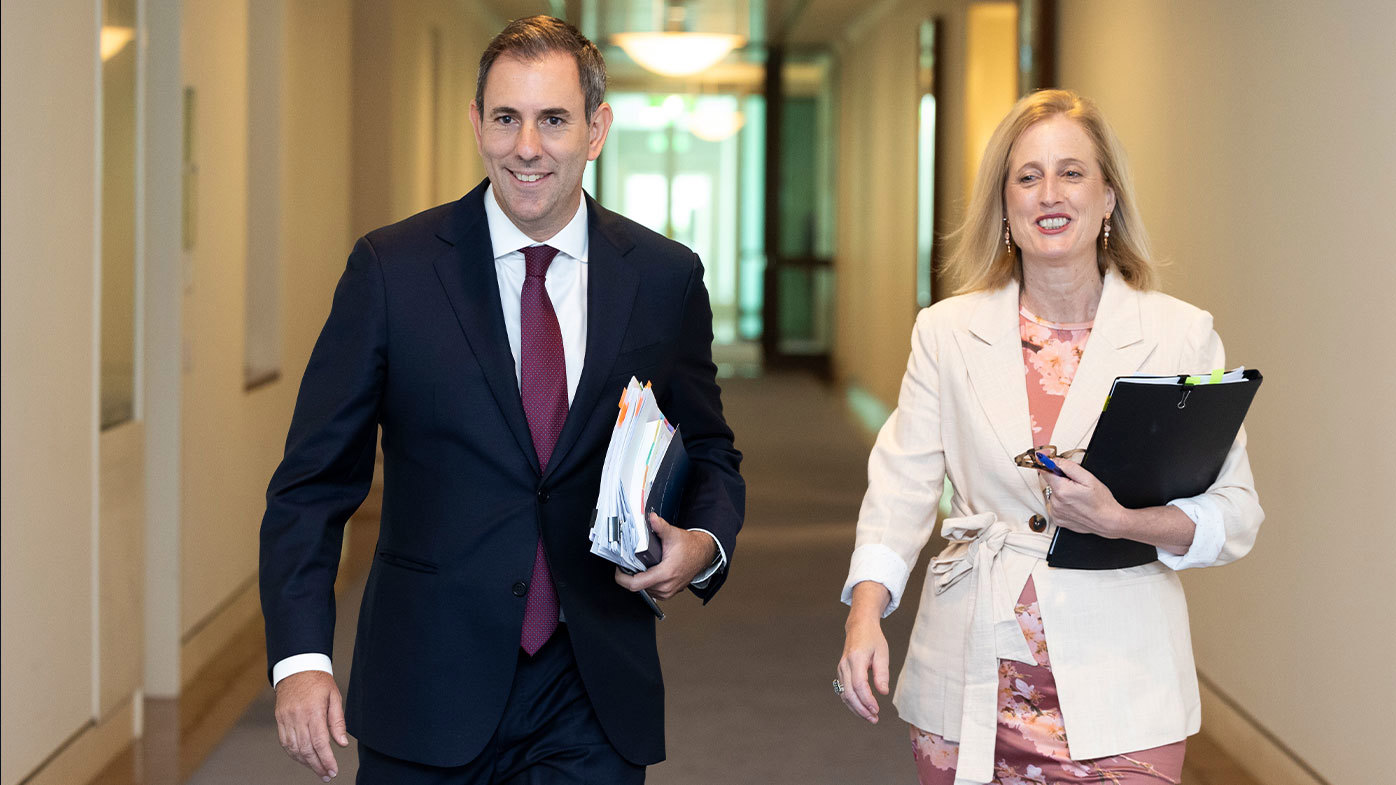Australia's budget is on track for a small deficit thanks to the country's strong labour market and high commodity prices but households remain under pressure with slow wage growth and no new cost of living support.
The Mid Year Economic and Fiscal Outlook (MYEFO) for 2023 to 2024 revealed $64.4 billion in tax heading into the government's pocket due to commodity prices, non-mining corporate profits and strong employment growth.
This means a small deficit is forecast for the next financial year of $12.8 billion after the government scored the first surplus in 2022/2023 in 15 years.
READ MORE: Jimmy Barnes reveals shock health battle
The surplus was a result of surging tax revenue from iron ore, coal and gas.
The deficit is an improvement of $1.1 billion from the May forecasts of $13.9 billion.
"This is an improvement of $12.8 billion compared to the budget and it is a $55.4 billion turnaround compared to what we inherited for this year," Treasurer Jim Chalmers said.
"We are not yet forecasting a second surplus but we are within striking distance."
The government has also identified $9.8 billion in savings and reprioritisations which will banked rather than spent as Chalmers pushes towards a smaller bottom line.
Inflation remains beast for government to tackle
The MYEFO forecasts inflation to return to the target band of 2.75 per cent in the June quarter of 2025 after peaking.
However, it expects headline inflation to remain at 3.75 this financial year.
"Inflation is moderating but it is still too high," Chalmers said.
Unemployment is also expected to rise "modestly" to 4.25 per cent by June 2024 from 3.6 per cent in the 2022 to 2023 financial year.
"While leading indicators suggest some slowing is underway, consistent with the expected softening in growth, the labour market is forecast to perform well compared to pre-pandemic averages even as momentum eases," the MYEFO said.
READ MORE: Cyclone Jasper to strengthen as it makes landfall
Household budgets under pressure
While the latest budget update delivered a paper-thin deficit, household budgets remain under pressure.
Real wage growth was forecast to be 0.75 per cent this year but instead, it has been revised to 0.25 per cent.
Although, positively, growth is returning in early 2024, it is a blow to households struggling with the cost of living pressures.
"There has been an uptick in the inflation forecast, and that has impacted on the real wages forecast," Chalmers explained.
"We have actually just seen two consecutive quarters of real wages growth, which is good progress.
"We still expect to see annual wages growth in a sustainable way next year."
In terms of surging interest rates that have hit household budgets significantly in the past 19 months, the MYEFO forecasts the cash rate has peaked albeit higher than what was anticipated in the May budget.
"Financial markets and market economists see the current cash rate of 4.35 per cent as at or near its peak," the MYEFO said.
"This is higher than the 3.85 per cent peak assumed at Budget, and the higher cash rate profile will act as an additional drag on consumption and dwelling investment over coming quarters."
No additional cost of living relief
The MYEFO didn't announce any new cost of living sweeteners for Australians, relying on the $23 billion in announcements from the May budget.
Some of the measures in the May announcement included energy bill rebates to some Aussies and small businesses, rent relief to low-income earners, early childcare rebates, increased dispensation of medications and bulk billing at doctors for low-income earners and children.
It comes as the treasurer avoids over-stimulating the economy as it fights inflation.
"We understand that Australians are doing it tough and that our economy is slowing and that is why we are rolling out tens of billions of dollars in relief and fixing the budget and making weng and encouraging progress in this fight against inflation," Chalmers added.





